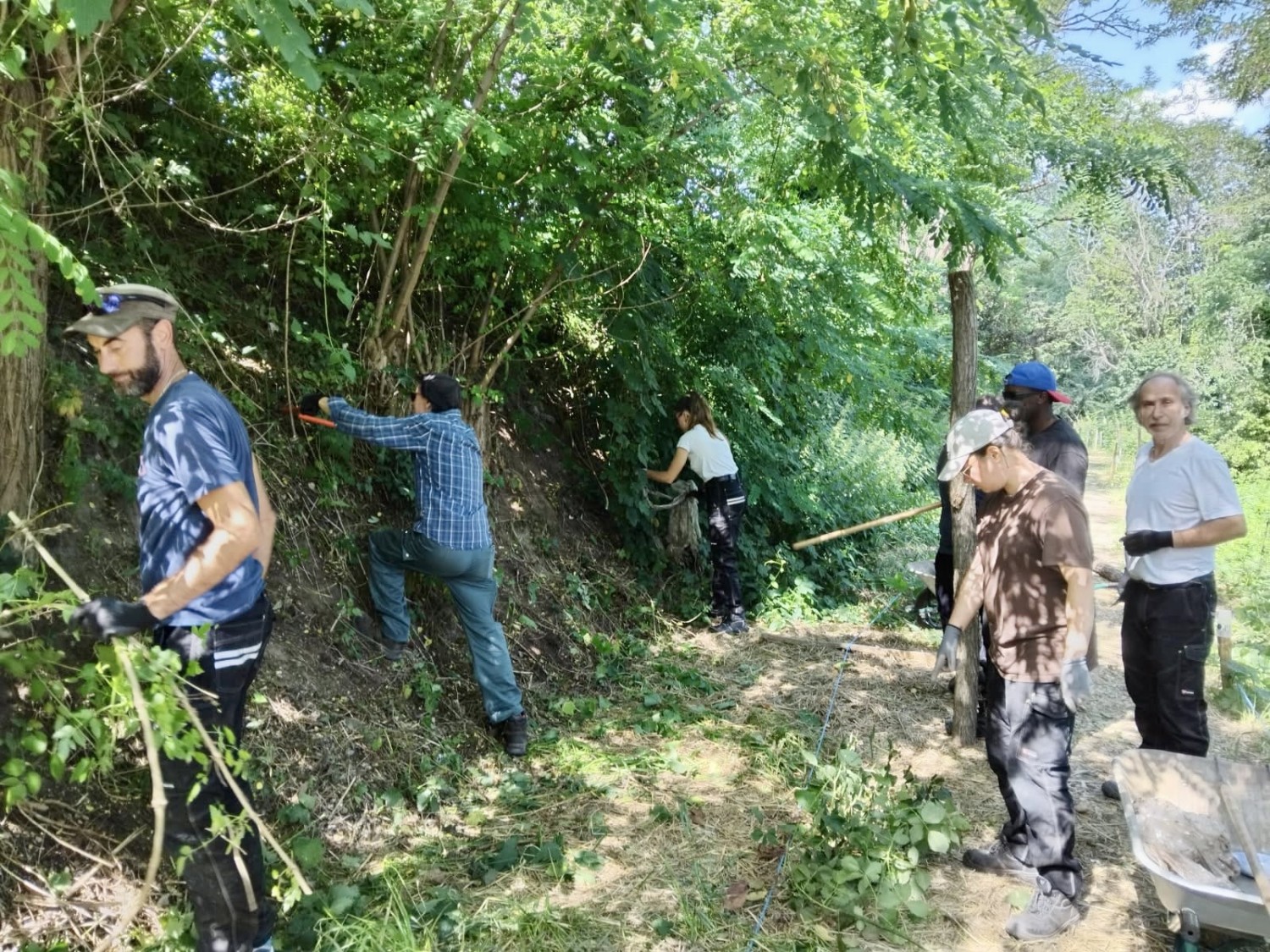Urban agroecology experimentations in high-density areas
Agroecology as a participatory act of ecological repair in dense urban areas
This paper explores agroecology as a participatory act of ecological repair, based on experimental desartificialization initiatives led by gardening collectives in dense urban environments. Grounded in a doctoral research project in spatial planning and urban studies, the study draws on ongoing fieldwork in Plaine Commune, a highly urbanized and polluted territory undergoing profound transformations in the Paris metropolitan region (Blanc et al., 2017; Bellanger & Lelévrier, 2023). This area faces significant ecological and social transition challenges.
Desartificialization is approached not merely as a technical or regulatory operation, but as a living, situated process co-constructed with local residents through collective agroecological practices: soil restoration, mobilization of local energies, attention to more-than-human life, social and professional inclusion, popular education, civic participation, and participatory research.
The research draws on the theoretical framework of Ecological Reparation (Papadopoulos, Puig de la Bellacasa, Tacchetti, 2023), which conceives ecological repair as going beyond material remediation, becoming an emancipatory, political, social, and memorial act. Echoing Salvadoran experiments (Millner, 2023), desartificialization here enables the reactivation of local knowledges and marginalized memories.
The study is structured around several key questions: - In what ways can urban gardening collectives be considered as producers of situated soil knowledge ? How do these practices help repair not only degraded soils, but also suppressed collective narratives ? - How do state- and municipality-led desartificialization policies integrate or fail to integrate vernacular knowledge and participatory dynamics ? - What forms of narrative and knowledge production can value these grassroots practices and turn research itself into a tool for ecological, social, and methodological repair ?
Through participant observation at Lil’O, a citizen-led ecological site on Île-Saint-Denis, this contribution highlights urban repair as a space of experimentation, collaboration, negotiation, and sometimes conflict between institutions, residents, and living environments.
Following Ghelfi & Papadopoulos (2022) concept of “more-than-social movements,” these urban gardening collectives appear as agents of alternative ecologies, or alterontologies,
enacting transformative practices that challenge extractive urban governance and open up the possibility of other urban futures. This paper calls for greater recognition of situated knowledges in public desartificialization policies and argues for agroecology as a key lever of ecological and social repair in dense urban territories.
Lou Gomez is a PhD candidate in spatial planning and urban studies at Lab’URBA (Université Gustave Eiffel), under the supervision of Jennifer Buyck. Trained at the Institut d’Urbanisme et de Géographie Alpine in Grenoble, within the Urban Design program, she develops a sensitive and situated approach to territories, attentive to social and ecological dynamics.
← go back to
the programme
Illustration →
© Stéphanie Herbé
